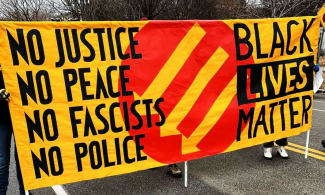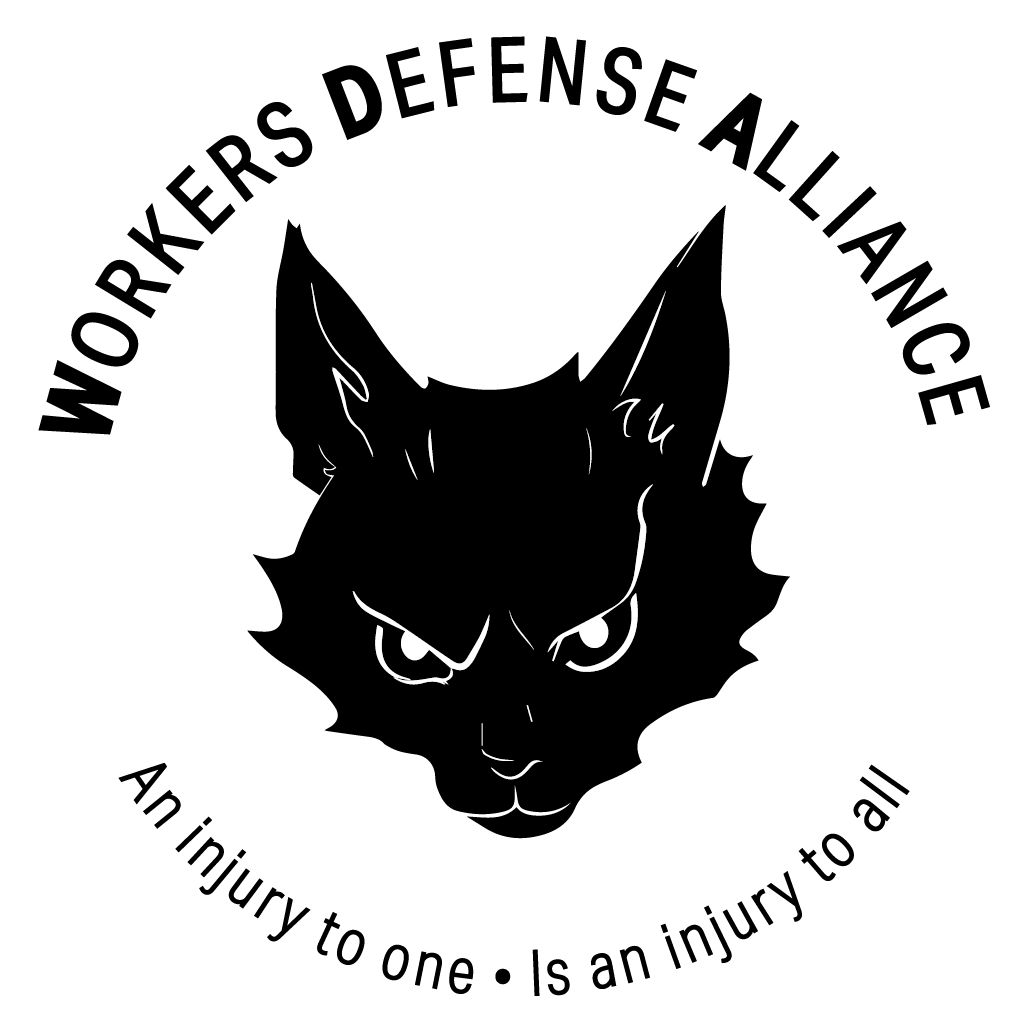
Wes - Cybersecurity -Alliance Infosec/Tech
Though the charred remains of the Third Precinct are now covered in snow, the echoes of the hot summer days of the early Uprising are still reverberating among the working class. At the same time, they are reverberating through the state. Having seen what large groups of working-class people can do when they’ve been pushed too far, those in power are on high alert, ready to beat back radical action wherever they see it. As police repression mounts, we must think critically about our goals and tactics, be mindful of how we marshal the crowd, and accept criticism that helps us build better actions in the future.
While demonstrating on the freeway has long been effective for drawing the public eye, the limited number of places to exit makes it easy for the police to form a kettle - as we saw on November 4, 2020, when 646 protesters were kettled on I-94 in the largest mass arrest in Minnesota history. Similarly, this year’s annual New Year’s Eve noise demo in downtown Minneapolis experienced unprecedented repression, with a mass arrest that left five attendees facing felony charges. Though similar protests have occurred for years, largely without such disastrous consequences, fear of another Uprising pushes the state to bring the boot down harder and faster than it used to.
Before the Action
Deciding on specific goals is the first step for planning an action. What is it we want to accomplish? What are our demands? Once our goals have been decided, we can discuss tactics that fit our goals. If our goal is to drive out a large right-wing demonstration, a large, confrontational march will be more effective than a banner drop off a nearby bridge. When deciding on tactics, we must also keep in mind that tactics we have used in the past may no longer be the best choice, due to changing conditions, including increased repression. We can draw new, more effective tactics from the successes and failures of recent actions around the world, whether it be the Hong Kong protests or actions planned by local working-class BIPOC organizers.
We must also make sure both our goals and our tactics are in line with our own political values and long-term goals. A rally to demand Trump be impeached may not be in line with your goals if you know kicking him out will not solve the larger problems of colonialism, white supremacism, and capitalism. We must be true to our values and make sure our work builds towards a world we want to live in. If we are going to risk arrest, it should be for a goal we believe in.
During the Action
At the action itself, it is important to remember that, as organizers, it is not our job to keep the crowd under control. Our job is to help avoid problems that can be avoided, not to police the crowd’s behavior. We can do this by marshalling facing out: keeping watch for threats outside the crowd and working to avoid them. Marshalling out can look like having security deescalate an angry right-winger, or stalling the police by giving them useless information.
Some actions will pick up steam and grow out of our control - and that’s okay. The Uprising started as a “peaceful protest” and grew into a nationwide, multi-day attack on the state and capital. The working class is willing to take militant action, sometimes when we least expect it. We shouldn’t stand in our own way.
After the Action
One of the most important parts of the action is the after-action debrief meeting. The meeting is a place to analyze how the action went and give/receive constructive criticism. Talk about what went well and what needs to be improved. Give everyone space and time to say their piece. This process of identifying successes and failures is how we make our future actions better. The debrief meeting also gives us a place to decompress and emotionally support each other - something that’s important after the stress of an action (even one that goes well).
We must also be willing to accept feedback from people outside the organizing team. This could be from comrades, other groups we work with, or from your average attendee. It can hurt to hear people criticize the action you poured your blood, sweat, and tears into, but it is important to listen to the criticism without becoming defensive. It is okay to take a step back before you respond to a critical message, or to process a difficult conversation with a trusted comrade.
The changing conditions we’ve seen over the past year have made it more complicated to put actions together. We’ve adapted, and we will keep adapting as the world around us keeps changing. The more we can learn from each other -- from both our successes and our mistakes -- the better we can choose our strategies, achieve our goals, and build working-class power. Our strength is in our solidarity.
